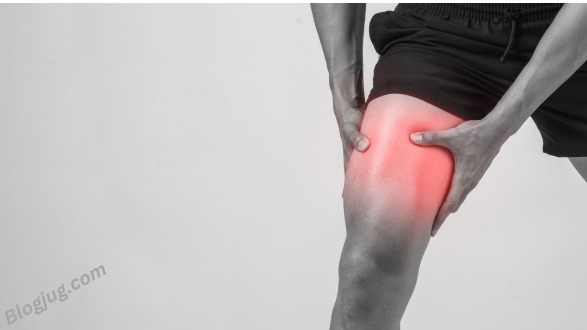Muscle discomfort can result from a variety of factors, such as illnesses, injuries, and infections. Both acute and persistent muscle soreness are possible. DOMS, or delayed-onset muscle soreness, happens after physical activity. Muscle pain and its underlying disorders can be prevented and managed by you.

Who might get muscle pain?
All ages and genders are susceptible to muscle discomfort. A change in exercise habits or attempting a new physical activity may cause delayed-onset muscle soreness (DOMS). After working out, muscle aches may start 6 to 12 hours later and continue up to 48 hours. As the muscles grow stronger and repair, you feel pain.
What other symptoms may occur with muscle pain?
Apart from aching muscles, you may also have:
1. Joint pain.
2. Muscle spasms.
3. Muscle cramps.
Possible Causes
What causes muscle pain?
Muscle discomfort can have many different reasons, including:
1. Medications.
2. Injuries.
3. Neuromuscular disorders.
4. Autoimmune diseases.
5. Infections.
What autoimmune diseases cause muscle pain?
When the immune system of the body unintentionally targets itself, autoimmune disorders result. A strong immune system protects the body against infections and illnesses.
The following are autoimmune diseases that cause pain in the muscles:
1. Multiple sclerosis (MS).
2. Polymyositis and inclusion body myositis are examples of inflammatory myopathies.
3. Lupus.
What types of infections cause muscle pain?
Infections caused by bacteria and viruses can leave you feeling pain all over. You may also have nausea, fever, and swollen lymph nodes, depending on the underlying cause.
Infections of the following kinds can result in muscle aches:
1. Malaria.
2. Trichinosis.
3. flu and Colds.
4. Rocky Mountain spotted fever and Lyme disease
What types of injuries cause muscle pain?
You run the risk of developing sore muscles from overuse when you exercise or utilize the same muscles at work frequently.
Other injuries that result in aching muscles are as follows:
1. Tendinitis.
2. Tendinosis.
3. Abdominal strains.
4. Back pain and bruises.
5. Traumatic wounds and fractured bones.
6. Condition of myofascial pain brought on by repetitive motions.
What medications cause muscle pain?
Some drugs cause inflammation around muscle cells (myositis) or activate muscle pain receptors. These treatments include:
1. Drugs for high blood pressure, such as ace inhibitors.
2. The purpose of statins is to lower cholesterol.
3. Radiation and chemotherapy are two cancer treatments.
What neuromuscular disorders cause muscle pain?
Both muscles and the nerves that regulate them are impacted by neuromuscular diseases. They could hurt and weaken your muscles. These conditions include:
1. Myasthenia gravis.
2. Atrophy of the spinal muscles.
3. lateral sclerosis amyotrophic.
4. Muscular dystrophy.
What other conditions cause muscle pain?
Muscle discomfort can also be caused by the following other conditions:
1. Syndrome of persistent weariness.
2. Fibromyalgia.
3. Hypothyroidism
4. Tension and stress.
5. Cancers, such as sarcomas (soft tissue cancers) and leukemia (blood cancer).
6. Artery disease in the periphery
7. Compartment syndrome
Care and Treatment
How do healthcare providers diagnose muscle pain’s cause?
Your doctor may prescribe tests like these if you have severe or persistent muscle discomfort and are unsure of the cause:
1. Muscle biopsies to look for changes in the muscle tissue that could indicate neuromuscular diseases.
2. Electromyography is used to measure the electrical activity in muscles and nerves.
3. Blood tests to check for infections and assess hormone, enzyme, and electrolyte levels.
4. Should perform a CT or MRI scan to look for signs of muscle injury.
How is muscle pain managed or treated?
You might feel better after doing these things, depending on the cause:
1. Soak in an Epsom salt bath or have a warm shower.
2. Taking over-the-counter pain relievers such as aspirin, acetaminophen, ibuprofen, or naproxen is advised.
3. Think about giving complementary therapies like massage, acupuncture, or meditation a try.
4. Rest and elevate the painful area.
5. Alternate between applying cold packs to reduce inflammation and heat to promote blood flow.
When to Call the Doctor
When should I call the doctor?
You ought to contact your physician if you experience:
1. Fever.
2. Muscle weakness.
3. Chest pain.
4. Limb numbness or tingling.
5. Unable to regulate their bladder.
6. New or worsening pain.
A note from Blogjug
Most people have muscle aches and pains from time to time. For acute muscle soreness, stretching, relaxing, and painkillers can all be helpful. It is difficult to enjoy the activities you used to like when you have persistent or severe muscle soreness. If you experience persistent muscle soreness, talk to your doctor about possible treatment options.









1 thought on “Relieving Muscle Pain: Strategies and Tips”